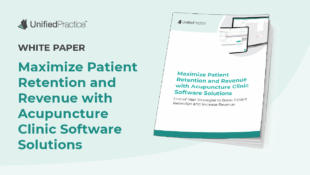As a professional in the acupuncture industry, you spend most of your time and energy on making your patients feel well – but how often do you check in on the financial health of your business? A solid budget is one of the best ways to make sure your practice stays on track. With a few simple business budgeting tips, you’ll spend less time stressing about money and more time helping your patients heal.
1. Track All Business Expenses Accurately
The first step in business budgeting tips is to track all your expenses accurately. Know the difference between fixed and variable expenses – fixed stay the same every month (rent), while variable expenses can fluctuate depending on your needs or patient volume (medical supplies). Having a clear picture of both makes it easier to plan ahead and avoid surprises.
Check your finances every month so you have a good understanding of where your money is going. When you know exactly what’s coming in and going out, you can make smarter decisions and feel more confident about your financial future.
If the thought of tracking expenses feels overwhelming, you can use a software system designed for acupuncture practices that automates the process for you.
2. Set Clear Revenue and Expense Goals
To start setting revenue goals, think about how much money you want to bring in and break it down by patient. For example, if your goal is to bring in $5,000 a month, and each treatment costs $100, you know you’ll need to perform 50 treatments to hit that target. Breaking it down this way gives you a clearer sense of what you must do to achieve your goal.
Setting expense goals is all about keeping a closer eye on your spending. While it might be tempting to splurge on new supplies or increase your marketing budget, setting limits on these will help increase profits. To avoid overspending, you could allocate a set amount for medical supplies each month and establish a cap for marketing expenses.
3. Plan for Seasonality and Slow Periods
Every acupuncture practice experiences highs and lows. You might notice fewer bookings around the holidays when people are busy or traveling but an uptick during wellness-focused months like January or springtime. Understanding these patterns helps you anticipate slow periods and plan ahead.
Build a cash cushion with enough to cover rent, payroll, and other expenses. A good rule of thumb is to save enough for at least three months of essential spending. You can gradually build this fund by setting aside some of your profits during busier months. Then, you don’t have to stress about lower income during slow periods.
Another smart business budgeting tip is to diversify your income streams. Offer services or products that complement your practice, like herbal supplements, group workshops, or online wellness courses, for a steady flow of revenue even when patient bookings slow down.
4. Regularly Review and Adjust Your Budget
Set aside time each month and quarter to review your budget. During these reviews, look closely at your expenses to see if there are any patterns of overspending. Also, take a look at what your practice brought in and spent during the same time last year. Those insights can help you plan for seasonal shifts, allocate resources wisely, and avoid financial surprises. Then, use that information to make realistic projections for the coming year.
5. Use Budgeting Software or Professional Support
Even with these business budgeting tips, managing the financial side of your practice can feel like a full-time job. You likely have dozens of other responsibilities to handle, so using budgeting software will come in handy. Tools like QuickBooks or Unified Practice are fantastic options designed to simplify the day-to-day tracking of expenses, income, and patient invoices.
You can see exactly where your money is going and generate reports that clearly show your financial health. Some software even includes forecasting tools, helping you plan and make smarter financial decisions for the future.
If you need extra help, an accountant or financial consultant can make a big difference. Maybe you’re preparing for a major expense, struggling with tax planning, or just want to optimize your budget – a financial consultant will help you create a strategy for achieving your goal.
Unified Practice for Business Budgeting
These business budgeting tips will help you plan for growth, navigate slow periods, and make smart financial decisions without unnecessary stress. Make the process even easier for yourself with Unified Practice – track your expenses, forecast your income, and create a budget that truly works for your practice.
If you’ve been putting off budgeting, now’s the perfect time to start. Sign up for a free trial of Unified Practice so you can start focusing more on your patients and less on spreadsheets.




